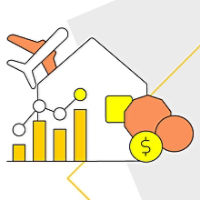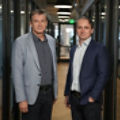The recent tariff wars provided a significant global economic shock that will continue playing out across markets, while Luke notes that China’s sluggish consumer sector and deeper structural issues will be another major story to watch for Australia.
“While the direct impact of the U.S. tariffs on Australia is likely going to be limited, the indirect effects from any slowdown in the global economy and in particular China could be more significant.”
“If both China and the US experience a slowdown, Australia won’t be immune from the ripple effects. These are trends that could shape trade, investment, and confidence at home.”
Domestically, the outlook is also complex. One of the key challenges for Australia this year will be navigating the delicate balance between inflation, interest rates, and economic growth.
“Here at home, we are seeing some positive signs in the Australian economy, but we’ll want to look closely to see whether inflation is continuing to come down, creating room for further interest rates cuts over the course of this year.”
Luke is also focused on several domestic pressure points. Housing affordability, rising electricity and insurance costs, and increasing demands on public budgets, particularly in areas like Defence, Aged Care, and Disability are all front of mind.
With a deep understanding of policy, a passion for data, and a commitment to clear, accessible communication, he’s determined to help CBA’s customers and stakeholders make sense of a shifting economic landscape.
“My goal is to provide insights that are not just accurate, but genuinely useful in helping people make better decisions.”



